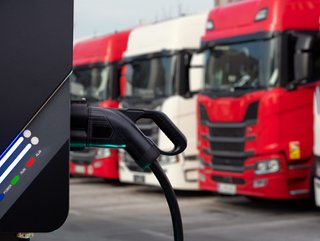Sustainable Logistics: What are Fleet Operators Waiting for?

Is there a business case for electrification? Yes. However, there are other factors at play when fleet managers consider shifting their age-old diesel-driven fleet mindset to electric power. This is a decision that can significantly impact profitability in line with commercial sustainability.
The conversation has certainly shifted over the past couple of years from an ‘if’ to a ‘how’, meaning that fleet operators are beyond considering that electric vehicles (EVs) are good for logistics. Instead they’re focusing on leveraging this transition to the greatest effect. The only difference here are the other matters at play, such as the impending climate issues that were not factored into the late industrial revolution.
Firstly, it’s worth noting that 79% of fleet decision-makers say there are now suitable EVs in the market for their specific business needs, which applies, more so, to commercial vans and light-duty vehicles. A more complex challenge to master is that of heavy goods vehicles (HGVs) and bulk transportation methods. This is where we see further options like hydrogen fuel-cell engines entering the mix.
As XPO’s Head of Sustainability for UK and Ireland Dr Nicholas Head explains, “Going all-electric for large operations with multiple fleets is currently impossible by the end of 2024”.
Alongside this, we learn from Head “there are three significant factors that are hurdles to overcome. In addition, financing the transition will take time as technologies prove themselves and become established in the market”.
On this point, Head explains that while the commercial van market is primed for electrification with much more suitable range and charging power, the complexity is in fact in the HGV segment, which requires more elaborate thought and further innovation.
“Vans are becoming more established as a go-to procurement option due to the longevity already gained from widespread testing and deployment,” says Head. “In contrast, heavy HGVs are only just coming to market for testing, so gaining confidence with these vehicles will take time and will likely see some carve-out niches.”
The multinational logistics firm based in Dubai, DP World brings a unique angle to this, but sees this trend from the perspective of container handling and other non-roadworthy equipment as its VP of Port Operations for the London Gateway Ahsan Agha explains: “Going all-electric is capital intensive as battery technology is relatively new for container handling equipment. This is not only important from an initial cost perspective but also from an operational cost angle considering the electricity price volatility seen in 2022. Requirement of additional grid and distribution network capacity could also pose a challenge for businesses going all-electric.”
This point ties two industries together, and leads to the inevitable conversation about smart, digital technologies. As we’ve seen in many instances, the energy sector brings with it a whole host of smart solutions for managing energy consumption and better informing businesses of how their operations perform.
Smart technology can often be seen as the silver bullet that provides greater fleet insight, management and efficiency, and, with this, comes reduced costs or improved cost-management practices. However, it seems the fleet sector is waiting on more charging, which is subject to greater infrastructure to allow access to more capacity for private sector charging points.
While governments focused on bringing electrification to the public, this left a gap in sustainable transformation, of which left few organisations with the solutions they needed. They want to make the switch, but power seems to be the sticking point for a lot of businesses.
“All stakeholders including, but not limited to, shipping lines, port operators, transport companies etc need to play their part in reducing carbon emissions from the supply chain,” says Agha. “More investment will also be required to increase the capacity of grid and distribution networks across the UK to cater to the power demand of charging infrastructure.”
Solidifying the fact that charging and infrastructure are the main issues for supply chains, we wonder where companies can take action themselves to ensure that, firstly, the infrastructure becomes available faster, and secondly, how they can leverage the limited services already available to get the ball rolling.
Technology is the bridging tool for this. Notably, Sustainability Magazine covered this in a previous feature that discussed how logistics firms can leverage smart solutions to manage their fleets across the current network of public chargers available. While public charging can be costly for larger goods vehicles—the few electric models in the market—managers can oversee the operation of their vans and initiate efficient route planning to keep their vehicles moving.
This is a solution that will likely be more applicable to longer trips, but will allow drivers to make their delivery slots, and even provide a basis for more accurate trip notifications to customers or consumers. As the public charging network grows, this will only become easier as more options become available.
In the future, though, logistics firms can envisage collaboration to ensure that charging systems are available for partner fleets—something to consider when private charging becomes cheaper and more accessible.
******
Make sure you check out the latest edition of Sustainability Magazine and also sign up to our global conference series - Sustainability LIVE 2024
******
Sustainability Magazine is a BizClik brand







